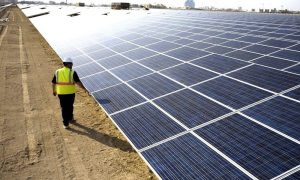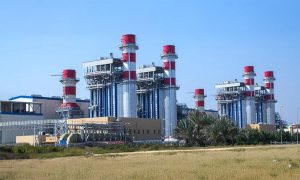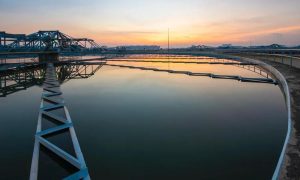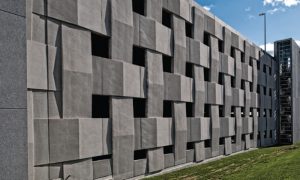Acwa Power reveals $35bn capacity and growth strategy
Firm is committed bringing local investors into Saudi renewable energy sector

Acwa Power has announced its intent to significantly grow its water desalination and power generation capacity via approximately $35 billion in investments in the coming years. The company plans to enter new territories as part of its growth strategy.
“We have already chalked out our next plan of action which will see Acwa Power enter 25 countries in a big way by 2025,” said President and CEO Paddy Padmanathan at the World Future Energy Summit (WFES) held at Abu Dhabi Sustainability Week.
The company also used its time at Abu Dhabi Sustainability Week to highlight solutions designed to tackle global energy and water challenges. According to a statement, participating at WFES enabled it to ‘engage with stakeholders in the industry to highlight its commitment to producing electricity and desalinated water efficiently, reliably, and safely at low cost’.
Discussing the world’s underestimation of the paradigm shift that renewable energy is capable of delivering, Padmanathan explained, “Electricity has always been driven by fossil fuels. Although constantly fluctuating, 75% of the cost of electricity generation is from fossil fuel. For the first time, we have the capacity to use the power of the sun and wind at no fuel cost and price oscillation.”
Padmanathan pointed out that fixed costs play an extremely important role in the future of renewable energy deployment. We can generate electricity and fix prices for the next 25 to 35 years by spending money upfront and collecting it back overtime, he said.
In line with its desire to contribute towards Saudi Vision 2030, Acwa Power also highlighted its growing efforts in the kingdom to take advantage of renewable energy as the primary resource to generate power. In addition, the firm is keen to facilitate the entry of local investors and developers into the Saudi market in a bid to spur the growth of renewable energy.
“Renewable energy remains the most competitive form of power generation in the GCC due to lower costs; economic diversification to supply demand; and the region’s commitment to diversify energy sources,” he concluded.

























